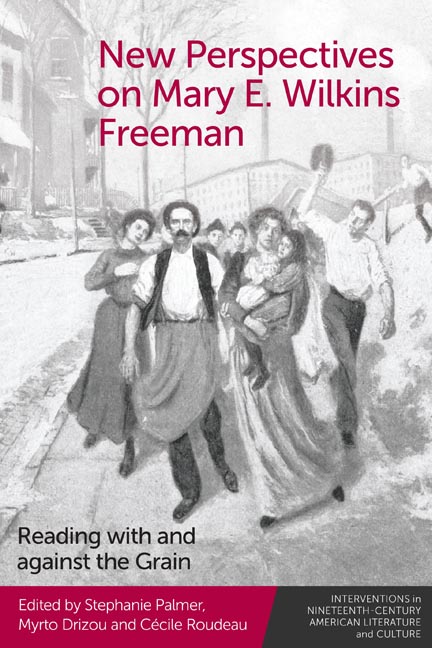Book contents
- Frontmatter
- Contents
- List of Figures
- Acknowledgments
- Contributors
- Reading Freeman Again, Anew
- Part I Kinship Outside of Normative Structures
- Part II Violent, Criminal, and Infanticidal: Freeman’s Odd Women
- Part III Women’s Work: Capital, Business, Labor
- Part IV Periodization Reconsidered
- Afterword: Why Mary E. Wilkins Freeman? Why Now? Where Next?
- Index
1 - Mary E. Wilkins Freeman’s Neighborly Encounters and the Project of Neighborliness
Published online by Cambridge University Press: 20 October 2023
- Frontmatter
- Contents
- List of Figures
- Acknowledgments
- Contributors
- Reading Freeman Again, Anew
- Part I Kinship Outside of Normative Structures
- Part II Violent, Criminal, and Infanticidal: Freeman’s Odd Women
- Part III Women’s Work: Capital, Business, Labor
- Part IV Periodization Reconsidered
- Afterword: Why Mary E. Wilkins Freeman? Why Now? Where Next?
- Index
Summary
Against a familiar backdrop of economic recession, industrial innovation, and a shifting social landscape, Mary E. Wilkins Freeman wrote the short fiction she is best known for—scenes of New England village life that depict with clarity, insight, and humor the daily dramas of courtship and marriage, family life, religious faith, and domestic spaces. Freeman also wrote poetry and novels, as well as short fiction in innumerable other veins, including dozens of stories for children, supernatural tales, and series of fiction focused on animals, flowers, and trees. And yet Freeman’s fame rested on her depictions of villages and their seemingly anachronistic inhabitants. This fame was a double-edged sword— Freeman’s skill in depicting regional locales and residents cemented her status as a regionalist writer during a time when even regionalism’s most vocal supporters voiced their defense of the movement in limiting terms. In an 1891 “The Editor’s Study,” for example, William Dean Howells describes Freeman’s stories as “miniatures” that record “narrowly” lived lives (20). Freeman and other local colorist or regionalist authors were frequently seen by their contemporaries as merely chronicling a fast-disappearing rural reality. Even when acknowledging the artistry of regionalist authors, critics emphasized their work as secondary or marginal; for example, in an 1895 article examining Boston’s literary history since the Civil War, Howells writes that while he does not “forget the exquisitely realistic art of Miss Jewett or Miss Freeman,” their stories “[have] hardly the novelist’s scope” (868).
However, as the work of recovery over the past few decades has turned critical attention to literary regionalism, this narrow conception of the genre’s scope has been scrutinized. The first work of feminist critics, including Judith Fetterley, Marjorie Pryse, and Sandra Zagarell, was to read the female-centered imaginaries of much regionalist fiction in the context of the patriarchal systems and structures of the late nineteenth century. Their oppositional reading has often situated appraisals of Freeman alongside other recovered regional writers, arguing that Freeman’s regional stories oppose national narratives, her female characters resist patriarchal control, and her domestic spaces counter the public sphere.
- Type
- Chapter
- Information
- New Perspectives on Mary E. Wilkins FreemanReading with and against the Grain, pp. 25 - 42Publisher: Edinburgh University PressPrint publication year: 2023



